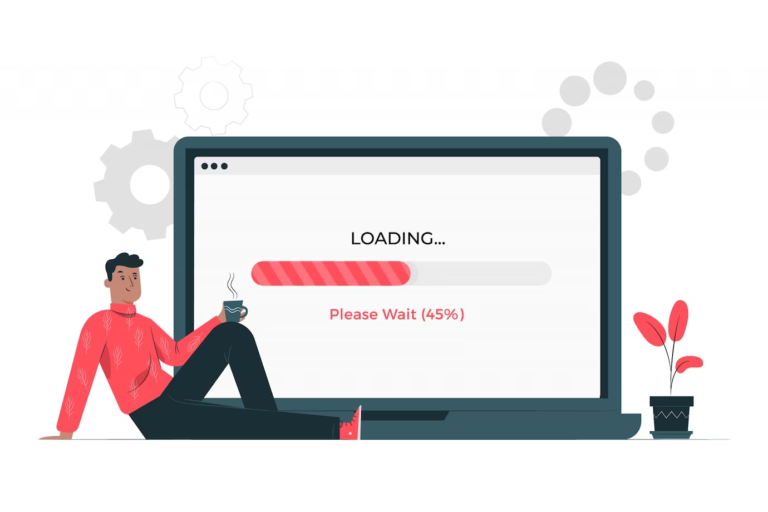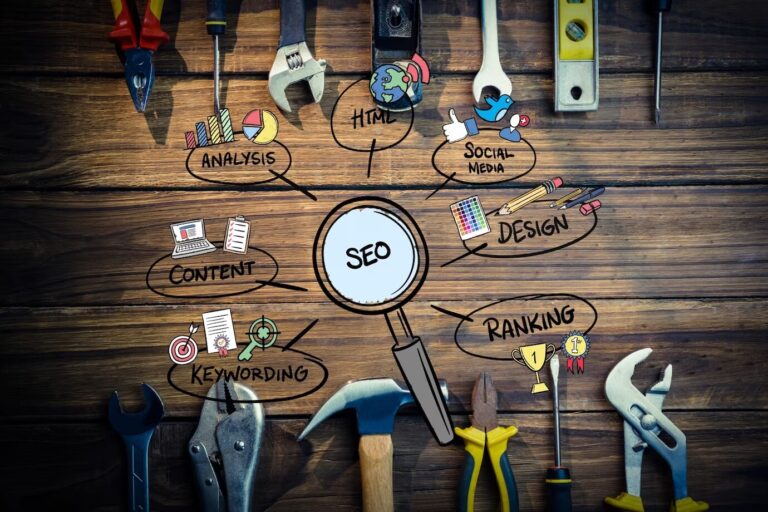Web Design and SEO Synergy: A Recipe for Online Success

In the ever-evolving digital landscape, a harmonious interplay between web design and SEO (Search Engine Optimization) is crucial for online success. Gone are the days when these two elements could operate in isolation.
Today, their synergy not only determines how well a website ranks on search engines but also shapes the overall user experience.
The Dynamics of Web Design and SEO
User Experience as the Foundation:
Web design goes beyond aesthetics; it’s about creating an intuitive and enjoyable user experience. Search engines, especially Google, prioritize user satisfaction. Websites that offer a seamless, user-friendly experience tend to rank higher. When users find what they’re looking for effortlessly, they stay longer, reducing bounce rates and signaling to search engines that your site is valuable.
Tip: Prioritize clean navigation, mobile responsiveness, and fast loading times to enhance user experience.
2. Content is King, but Design is the Crown:
Quality content is a fundamental aspect of SEO, but its impact is magnified when presented through effective web design. An aesthetically pleasing design captures users’ attention, making them more likely to engage with and share your content. This engagement sends positive signals to search engines, contributing to higher rankings.
Tip: Use visually appealing layouts, high-quality images, and an easily readable font to complement your content.
Correlating Web Design Elements with SEO Success
1. Mobile Responsiveness:
As of 2022, over half of web traffic comes from mobile devices. Google prioritizes mobile-friendly websites, and responsive design is a significant ranking factor. A mobile-friendly site not only pleases search engines but also caters to the growing mobile user base.
Tip: Test your website’s mobile responsiveness regularly and invest in a mobile-first design approach.
2. Page Load Speed:
Research indicates that users expect a website to load in under three seconds. Google recognizes this and rewards fast-loading sites with higher rankings. Optimize images, leverage browser caching, and consider a Content Delivery Network (CDN) to boost your website’s speed.
Tip: Regularly audit and optimize your website’s performance for swift loading times.

3. Navigation and Site Structure:
Search engines favor websites with clear, logical structures. An organized site hierarchy makes it easier for search engine crawlers to index your pages, enhancing your site’s overall visibility. Likewise, an intuitive navigation system ensures that users can find what they’re looking for with minimal effort.
Tip: Create a sitemap and ensure a logical hierarchy in your website’s structure. User-friendly navigation enhances both SEO and user experience.
Statistical Evidence: Connecting the Dots
Let’s delve into the data to substantiate the claims of the symbiotic relationship between web design and SEO.
1. Case Study: Redesigning for Success
A study conducted by Moz found that a well-executed website redesign led to a 62.5% increase in organic search traffic over a 3-month period. The redesign focused on improving user experience, enhancing mobile responsiveness, and optimizing page load speed.
Tip: Regularly audit your website’s design and make strategic improvements to stay competitive in the ever-evolving digital landscape.
2. Impact of Page Load Speed on Rankings
According to Google, sites that load within 5 seconds have 70% longer average sessions compared to slower counterparts. Additionally, a one-second delay in mobile load times can impact conversion rates by up to 20%. Google’s algorithm takes these factors into account, emphasizing the significance of speed in both SEO and user satisfaction.
Tip: Optimize images, leverage browser caching, and invest in a reliable hosting provider to improve your site’s load speed.
3. User Engagement Metrics and Rankings
A study by SEMrush revealed a strong correlation between user engagement metrics and higher search engine rankings. Websites with lower bounce rates, higher average session durations, and more pages per session tend to rank better. This highlights the importance of a user-centric design that encourages prolonged engagement.
Tip: Regularly analyze user engagement metrics and tailor your web design to enhance these key indicators.
Achieving Symbiosis: Tips for Seamless Integration

1. Keyword Integration in Design Elements:
Incorporating relevant keywords seamlessly into your web design can enhance both the visual appeal and SEO effectiveness of your site. From meta titles and descriptions to image alt text and headers, strategic keyword placement can boost your content’s relevance.
Tip: Conduct thorough keyword research and integrate target keywords thoughtfully into your design elements.
2. Optimizing Images for SEO:
Images are crucial for engaging content, but they can also impact SEO. Optimize images by using descriptive file names, adding alt text, and compressing files without compromising quality. This not only improves your website’s SEO but also contributes to a faster-loading site.
Tip: Use tools like Adobe Photoshop or online platforms to compress images before uploading.
3. Social Media Integration:
Social signals are becoming increasingly important in SEO. Integrating social media seamlessly into your web design encourages sharing and amplifies your online presence. Ensure that your website has easily accessible social sharing buttons and that your content is shareable across various platforms.
Tip: Actively engage with your audience on social media and encourage sharing through your website.
Conclusion
In the intricate dance between web design and SEO, the key to online success lies in recognizing their symbiotic relationship. A well-designed website not only captivates visitors but also sends positive signals to search engines, boosting your SEO rankings. By meticulously integrating design elements with SEO best practices, you create a recipe for sustained online success.
Remember, the digital landscape is dynamic, and what works today may need adjustments tomorrow. Regularly audit your website, stay informed about industry trends, and adapt your strategies to maintain a competitive edge.
Alnisa Web Design & Co. – Elevate your online presence with our expert web design and SEO services.
In conclusion, as you embark on the journey to online success, embrace the synergy between web design and SEO. With the right approach, your website can not only climb the search engine rankings but also offer a memorable and satisfying user experience.
About Alnisa Designs & Co.
Agency Info
Alnisa Designs & Co.
Office: 862-294-3714
Email: info@alnisadesigns.com
Monday – Friday:
10am – 6pm EST

